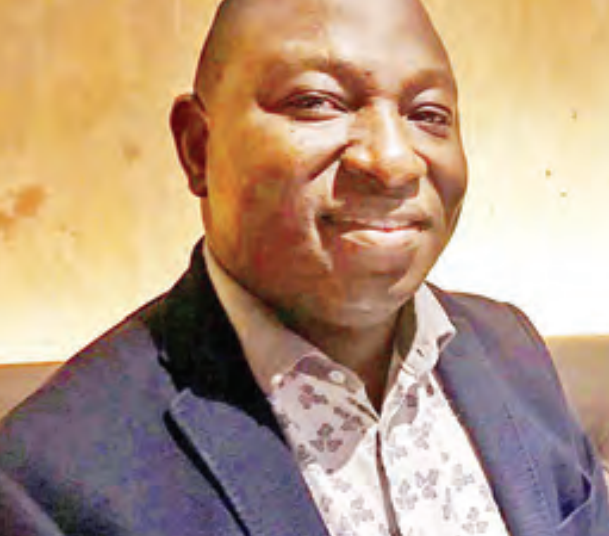How do you feel being conferred with the national honours of Commander of the Federal Republic?
I am grateful to President Muhammadu Buhari. Most importantly, it should serve as an encouragement to the Nigerian youths and the Nigerian populace that if they do the right things, they can be recognized.
Personally, I was overwhelmed, humbled and with mixed feelings and excitement. When I started the journey, it was with no anticipation of being recognised in Nigeria. It was undertaken with zeal and the quest for industrial liberation. For infrastructural development, ending insecurity and most importantly, for adding value to the Nigerian hydrocarbon and beginning to reverse the trend of us being a net importer of oil products to transform into being a net exporter. That was my core challenge, and I took it very personally that someone would lead this change.
We cannot continue to complain about it. Somebody must stand up to leading the new industrialization of the Nigerian state, viz-a-viz, the max utilization and adding value to the Nigerian Republic. This was my humble beginning, my humble aspiration. All that I am saying is a full encouragement to all of us as a Nigerian people, and the youths particularly because I stand for the youths and when I comment, this is just it, that the Nigerian state should watch out for those that are indeed very desirous of building the country and I am an example. I am an inspirational person to other people that if it could be done, let us continue to break more grounds and the Nigerian state will continue to make progress.
In what way has the granting of the licence to set up a modular refinery to the Azikel Refinery by the Federal Government helped to redefine the challenges surrounding refining crude oil in Nigeria?
The Nigerian private refinery venture, which I call the Buhari modular refinery regime, started in 2015. Prior to this time, Nigeria has major refineries in Port Harcourt, Warri and Kaduna. These refineries have been grounded.
So, Buhari launched an era of allowing private individuals to take the challenge. This was launched in 2015 and I am among those that were granted licenses. In fact, the president granted six of us at the initial stage.
I see the licence as a challenge, a call to prosperity and a true self-control of resources. However, I will tell you that building a refinery in Nigeria is no small feat. If you want to build a refinery in Nigeria, the only thing I can tell you that can lead to success is that you must have an ongoing business. Yes, it is not a first timers’ business because the gestation period is long and the capital investment is huge.
The challenges are enormous. That is the reason why of all the first six licensees, not more than two succeeded. Thereafter, two years later, the president granted another 46 and out of these, not less than four have begun to see the light of day.
Today, we have Azikel Refinery, which is the first private hydro-skimming refinery, meaning it is a refinery that produces petrol, diesel, kerosene and aviation fuel, and, Dangote refinery.
What would you describe as the mystery behind oil theft in Nigeria?
Oil theft is a situation where it boils down to one incentive, where some people took advantage of the pipelines that travel from the creeks in the Niger Delta. I believe when people begin to patronise real products, the oil theft itself would be a thing of the past because what these people do is that they break these pipelines and begin to cook these products but because it is not sufficient, people patronise that.
So, with enough and available products, nobody will patronise cooked diesel because the scenario is this, if you have ever used a cooked diesel for any of your generators, it rather destroys the machines. So, people are looking for products to utilize but the products are unavailable, and that is why a lot of people are beginning to gravitate towards this cooked diesel.
The Azikel Refinery is not enough to meet the needs of Nigerians and that is why my intention in the next six years is to wrap up Azikel Refinery to another 100,000 barrels. That will then begin to address the needs of Nigerians. So, with efficiency, with availability of a defined programme, oil theft by cooked diesel is going to be a thing of the past.
However, the challenge still remains that this is a very expensive venture. The Nigerian state should rise to assist all the investors in the sector especially those who have shown the grit to make a succes of it because it took a lot of time to get to where we are today.
What is your take on the soon-to-be launched Nigeria Air?
The aviation industry is a very sophisticated with several levels of endeavours in making it a success. Nigeria, indeed, needs a carrier. But, Nigeria cannot operate a sustainable carrier without the right partnership. Therefore, securing the right is very important and the way to go, and securing it with people that have already made success.
You cannot be in isolation in operating or participating in the aviation industry, particularly in Africa. There is no part of the airplane that is produced in Africa. So, you need the right training, the right people, the right environment, the right organisations, so I believe very strongly that Nigeria can make a great success, particularly if we stand with others that have succeeded. For instance, British Airways has been a company over time that has engaged everybody in the world. There are others even in Africa, that have made great success in their vision like the Ethiopian Airlines and if you look at the details of the Ethiopian Airlines, the operators are not necessarily Ethiopians. Same way Emirates, the operators and managers are not from The Emirates. We have to learn to open our door and bring in everybody that has the desired knowledge to contribute.
As an industrialist, and one who wants to touch the world from home, what is your next line of action in Nigeria?
My focus has been changing the world from home. Many great people have changed the world. However, I don’t want to change the world from just anywhere, I want to change it right from my village.
Of course, you know I am a medical doctor. And from medicine, I have traversed all the aspects of medicine and I went into sand business, all in the sense that I wanted to make infrastructural development possible back in the Niger Delta and that is changing the world from home. All the infrastructure that I have built in Bayelsa and the Niger Delta I have my signature on them because I provided sand for them. That was changing the world from home.
Then, I made divestment to Azikel Oil with the refinery. The next thing I want to do is to contribute my quota to power generation. I have been licensed with 500 megawatts power generation and I believe very strongly that unlocking the Nigerian wheels of industry in a very trusted manner is making power available and I want to demystify and ensure that we make this in a success story.
The next thing of course is making power available to all. The refinery already provides power to more than 25 communities free of charge.
What is your advice to Nigerians ahead of 2023 general elections?
As citizens, we have the responsibility of choosing the right people. We have to participate in ensuring that we choose the right people that will make the right policies to be able to guarantee a society of peace, a society of freedom, that will encourage investment so that we can once again make Nigeria greater than what it is.
Are you likely to hearken to the calls on you to join politics, by Bayelsa state people?
I really don’t have plans to participate as a political leader. I am an industrial leader and the wheels of industry are very critical. I cannot leave the industry as at today without driving it to a logical conclusion to jump into another sphere. We need the industrialists and we need those of good governance to be able to create the right environment for our people.
There has been quite a number of call for me to participate in the Bayelsa politics but I have made people to understand that it is not everyone that will do that. By the way, I have also participated in some kind of political activities in the course of my life. I was the best Commissioner for Health when I served as a commissioner in Bayelsa State.
What is your philosophy about life?
My philosophy about life is that one must remain focused on whatever he or she is doing by putting in his or her best always, particularly if that thing would add value to human life.
What is your advice to this generation, particularly those who are hasty to make quick money?
They should know that there is no quick money that is sustainable. The award of the CFR to me should inspire every Nigerian positively. It should be clear to them that it is possible for them to be honoured in their country, by doing the right things. There is no quickness in wealth. You must toil. And, that is the only way you can even manage it. And of course, when you see wealth that is spread and announced everywhere, it didn’t come right. The major and critical thing is staying focused and committed to what you’re doing.
Your words of advice to Nigerian youths entrepreneurs.
The youths must remain committed in whatever endeavours that they have chosen to do. I believe in working diligently and being focused on what you do. So, the youths must remain focused. There is no time limit. Keep doing what you’re doing and keep improving on what you do.





